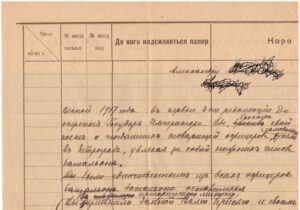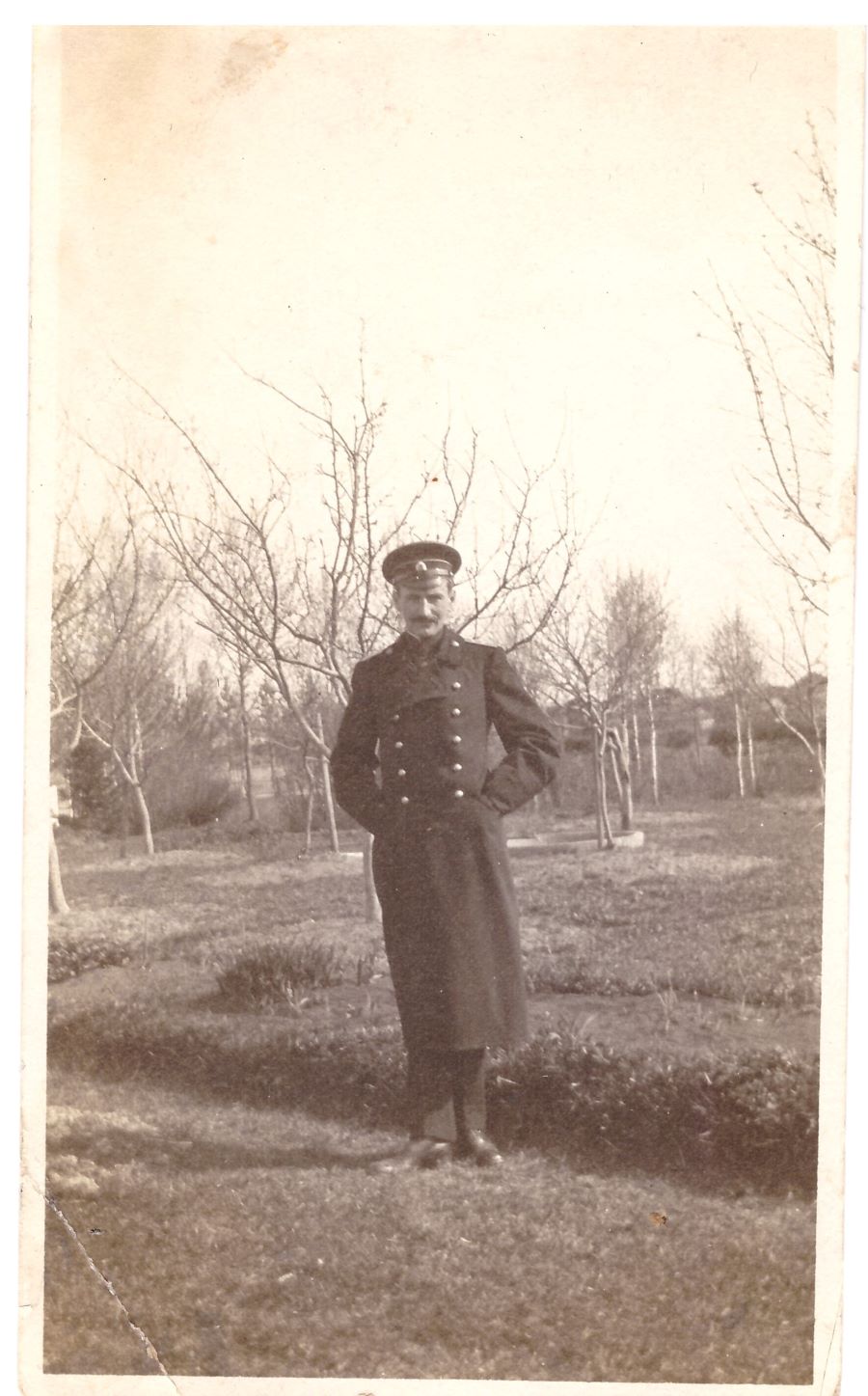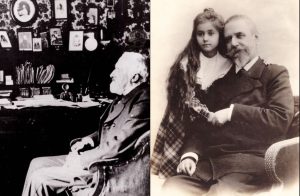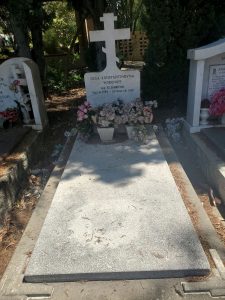That is the gist of the letter I found among my grandparent’s
possessions. It was written by my grandfather, Lt Pavel Voronov (Paul Woronoff).
This letter is most likely a draft as words and sentences have been crossed
out. In the image below I have crossed out most of the name of the addressee,
just in case. I do not know the full story behind this letter and can only
assume. I do not want to chance any of his descendants reading this post, as
they might not know what he did.

What I do know is my grandfather was very angry. The
translation of the letter reads like this:
“In spring 1917, in the first days of the
revolution and before the abdication of His Imperial Majesty, you abandoned
your post and your fellow officers and went without authorisation to Petrograd,
luring the battalion’s lower ranks to follow you.
In the historical moment you broke your oath
and betrayed your fellow servicemen who stayed and honoured their pledge. With
your actions you put them in a grave situation.
After everything that has happened, one would
assume you would be embarrassed and would avoid any encounters with us.
Almost three years have passed and suddenly you
have appeared on the territory of the Military Forces of the South of Russia
and are saying hello and trying to converse with us as if nothing has happened.
The matter with you will be decided at the
meeting of the Naval Guards Officers. Meanwhile we inform you that you do not
exist for us, any encounters with you are burdensome for us, and we shall not
speak with you or shake hands with you. We also wish that you do not wear the
Naval Guards Officer’s insignia.”
That is some letter! My grandfather certainly did not mince
words. I would not want to be the recipient!
This draft – let us assume it is a draft – was written on
what appears to be a Ukrainian form. If it was written “almost three years”
after the initial event of desertion, that would put it around early 1920.
However, towards the end of 1919 it appears my grandfather was on some sort of
mission in Crimea and it is possible he drafted the letter while there. So the
Ukrainian form makes sense.
What actually happened in the spring of 1917, I will
probably never know. I do know that my grandfather, who served as a naval
officer on the Tsar’s yacht, the Standart, was, at the beginning of World War
I, sent to a reserve battalion to fight with the Russian army. Was it from one
of these battalions that the deserter left and headed for the chaos which would
have been in Petrograd at the time? It is possible.
Whatever the circumstances, my grandfather made it pretty
clear in his letter that neither he, nor his fellow officers, were ready to
forgive the deserter. I do not blame them. It would be difficult to trust
someone who had let his colleagues down so badly.




